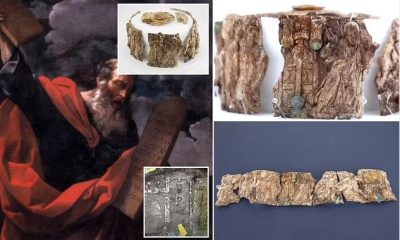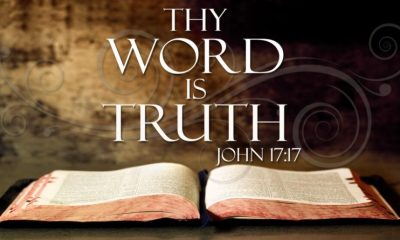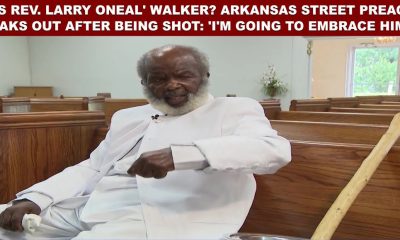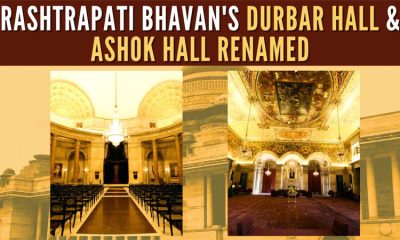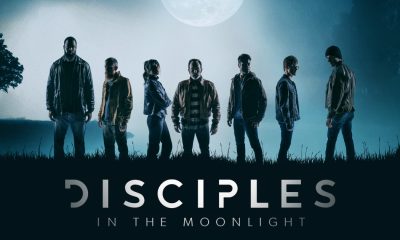Articles
How Psalm 100 teaches us how to practice true thanksgiving

We have been working through Psalm 100 and considering five principles that are critical for believers of Jesus Christ to understand as we reflect on the Lord’s call to give Him thanks.
The first principle was the Proclamation of Thanksgiving. The second is the Practice of Thanksgiving.
Notice verse 2. “Serve the LORD with gladness.” Then verse 4 toward the end: “Give thanks to Him.” These two statements, although perhaps not as evident in our translation, have official religious service ideas behind them. That’s why the NIV translates verse 2, “Worship the LORD with gladness,” recognizing the official worship behind the idea of service. Giving thanks, likewise has the idea of an official proclamation of thanksgiving, and together, these words point to a sacrifice of thanksgiving. The idea is the religious observance that someone who is truly thankful practices in their worship of the victorious King.
As we think about this, New Covenant believers, of course, no longer offer sacrifices because Jesus is the once-for-all, final, perfect sacrifice. To offer any other blood sacrifices, or to go back to the sacrifices commanded in the Mosaic Law, would be an insult to the blood of Christ. But the New Testament has many things to say about our acts of service that reflect thanksgiving. For example, in Hebrews 13:15-16, we find this: “Through Him (Jesus), then, let us continually offer up a sacrifice of praise to God.” Now, the letter to the Hebrews has been a long polemic against the Mosaic Law now that Christ has come with a better covenant, a better priesthood, a better everything! So, the writer immediately clarifies what he means when he says a sacrifice of praise to God: “That is, the fruit of lips that give thanks to His name. And do not neglect doing good and sharing, for with such sacrifices God is pleased.”
Here we see the New Covenant believer’s sacrifice of thanksgiving to God. It happens in community, because we can’t do good without someone else, a brother or sister, who benefits from our good work and sharing. The sacrifice of thanksgiving for the new covenant believer is not a ram or a bull or a goat or a grain offering, but it is lips that thank God out loud in the covenant community and a life that shows gratitude through generosity. That’s the practice of thanksgiving: gratitude reflected in word and deed.
The third principle contained in Psalm 100 is the Place of Thanksgiving.
Now this is fascinating. Notice verse 2 again. “Come before Him with joyful singing.” And the parallel is in verse 4: “Enter His gates with thanksgiving and His courts with praise.” This is a powerful truth. The place of thanksgiving, to put it simply, is before the face of God — in His presence.
When the Psalmist says in verse 2, “Come before Him with joyful singing,” he undoubtedly has the Temple in mind. That’s why in the parallel, he references the gates of God and the courts of God, which are clear references to Temple worship in Israel. This is significant for at least two reasons. First, remember the call-in verse 1 is to all the earth. God has called all nations to come into His temple to worship Him, thank Him, and give Him praise, honor, and glory.
Again, we have one of those mysteries in the Old Testament that could not be fully understood until Christ came. How are the Gentiles going to be able to come into the gates and courts of the Temple of Adonai Yawheh and worship Him? Aren’t they unclean and outsiders? Here, though, we see God calling all the earth to come into His temple, into His very presence, into the place where only holy people are allowed to come, to praise and thank Him.
Second, this is significant because it reminds us that when we give God thanks, we do so in His very presence. God is not far away, off in some other world, distant, watching us from afar as we give Him thanks. Not at all! Rather, when we come together for worship and to give Him thanks, and when we set aside time to show our gratitude to God, we are in His very presence, before His very face. The Lord is near. He hears us, and He is with us. Giving God thanks is a holy, personal communion with the living God. It is a joyful, song-filled, praise-filled, thanksgiving-filled time in presence of God.
The question this raises pertains to the temple. How do we, unclean sinners, get into the presence of God as acceptable to Him? How do we, especially we who are Gentiles, enter God’s courts and His gates? When John wrote his Gospel, the Jerusalem temple was gone, and based on some things John wrote it seems that worship without the temple was a question on many people’s minds, both within and without the church. It comes up in Jesus’ discussion with the woman from Samaria in John 4, where Jesus declares that a day would come when worship would not take place either in Samaria or in Jerusalem, but it would happen in Spirit and truth, almost as if Spirit and truth were geographic locations.
Earlier, in John 2, Jesus told the Jews that if they destroyed the temple, He would raise it up in three days. They were incredulous since it took 46 years to build the temple, but John notes in John 2:21, “But He was speaking of the temple of His body.” The disciples took a while to understand the significance of this. “So, when He was raised from the dead, His disciples remembered that He said this; and they believed the Scripture and the word which Jesus had spoken.” They didn’t get it until after the resurrection. Jesus essentially said, “You try to come into the presence of God by going into a building. The true path to the presence of God is Me. If you want to enter into the gates of God, if you want to enter His courts, if you want to come before Him, I am the only way.”
The place of thanksgiving, then, is in the presence of God not through being in a geographic location but by being in Christ. That’s why Paul wrote in Ephesians 2:18, “For through Him we both (Jews and Gentiles alike) have our access in one Spirit to the Father.”
If we are in Christ, we give thanks to God, not at a distance, but in His very presence, before His face. What a glorious truth that we have access through Jesus to the very presence of God, to the holiest place, and not only that, but God in this Psalm has called us to enter there to give Him thanks.
Sources:Christian Post
Articles
The Bible was telling the truth

A recent article in Britain’s The Daily Mail suggested that the prophets Amos and Zechariah may have had something right. As the writer puts it,
“A scientific breakthrough has exposed the truth about a site in ancient Jerusalem, overturning expert opinion and vindicating the Bible’s account. Until now, experts believed a stretch of wall in the original heart of the city was built by Hezekiah, King of Judah, whose reign straddled the seventh and eighth centuries BC. … But now an almost decade-long study has revealed it was built by his great-grandfather, Uzziah, after a huge earthquake, echoing the account of the Bible.”
“… echoing the account of the Bible.” The story reminds me of a scene from a Pirates of the Caribbean movie, when a character says to Johnny Depp’s Captain Jack Sparrow, “You actually were telling the truth.” To which Captain Jack replied, “I do that quite a lot. Yet people are always surprised.”
Throughout the last century, and especially in the last few decades, the scholarly world has been “surprised” to find that the biblical authors were telling the truth. Skeptics assume that the content of the Bible is more “pious fraud” than history, a well-intentioned story to inspire the faithful. And yet the reliability of the Word of God has been repeatedly affirmed, as more biblical archaeological sites are discovered and more extra-biblical sources corroborate biblical events.
From small artifacts to larger sites, recent discoveries lend proof to biblical accounts. For example, DNA found in the City of David confirmed that the Philistines, Israel’s main enemy during the reign of King David, turned out to be exactly the sort of people the Old Testament described. A smaller discovery was of a signet ring that confirmed the detail of an Old Testament character who only gets a passing mention in 2 Kings. And, of course, there was the discovery of the site of the Pool of Siloam, where we know Jesus walked.
These findings match characters and events in the Bible to tangible, touchable, real things, a crucial confirmation for a worldview that is not esoteric but fully grounded in events that took place within human history. Luke, once written off as a fable-maker, is now considered by most scholars to be an excellent and precise historian. Though online atheists may continue to insist that Jesus never existed, no reputable biblical scholar would support this theory. To paraphrase Mark Twain’s preemptive obituary, rumors of the Bible’s inaccuracies have been greatly exaggerated.
Of course, the Bible is a more comfortable book if only merely “spiritually” true and not really true. This is the sort of thinking that has both shaped and sapped the strength of liberal Christianity, such as is found in many mainline denominations. Once giants in American Christianity, most are now mere husks of their former glories, with increasingly empty churches that have dropped all the doctrine but kept the robes and collars of their now rainbow-accented vestments.
The Bible, however, doesn’t offer the option of just believing the comfortable stuff. It demands to be taken as fact or not at all, while making claims about real times and real places, about real people and real things. Most notably, it claims that the God revealed in its pages intruded Himself into the grit and grime of our fallen world in a way that can now be found by archaeological discoveries. If the God of the Bible is indeed God, He is the God of the real world.
It should comfort that what God has given to us in the Bible is true. Thus, it can be trusted in all that it promises, whether about the past, the present, or the future.
Sources:Christian Post
Articles
8 ways the Kingdom connects us back to the Garden of Eden

When Jesus came as the last Adam (1 Corinthians 15:45), He announced the good news of the Kingdom of God (Mark 1:14). What is the Kingdom of God? The rule of God emanates from the throne of God in Heaven. Hence, the Kingdom of God rules over all of creation (Psalm 22:28; 24:1; 103:19).
Consequently, when Jesus announced that the Kingdom of God was at hand (Matthew 4:17), He declared that restoring the created order back under His rule as it was in the Garden of Eden (before the fall) was now inaugurated.
We see themes relating to the work of restoration to Eden throughout Scripture (Isaiah 11:6-9; 51:3; 65:17-25; Ezek. 36:34-36; Romans 8:19-21; Rev. 21:1-5).
In light of this, we see that the Gospel of the Kingdom of God is related to the reconciliation of the world, not merely to individual sinners (2 Corinthians 5:19).
The following are eight ways the Kingdom of God is connected to the Edenic state.
1. Through work
God’s first act after creating Adam was to put him in a garden to work and keep it (Genesis 2:15). Even before Adam had a family, he worked unto the Lord. (Hence, using our abilities to work is not merely to provide for our family but is an act of worship since we are reflecting Yahweh who worked for the six days of creation.)
Consequently, Paul the apostle commands the Church to work and to be a blessing to others (Ephesians 4:28; 1 Thessalonians 4:11). Paul even declares that if a man does not work, he should not eat! (2 Thessalonians 3:10)
Thus, Christians are called to work and plant the Garden of the Lord as part of our Christian witness that the Kingdom of God is at hand.
2. Through God’s provision
God planted humanity in a lush garden with enough to sustain it even before Adam worked. Humans did nothing to earn what we were born into, yet God provided everything we needed for sustenance through His grace.
Consequently, continuing to receive divine provision is one way the Church manifests the Kingdom of God to the rest of the world.
3. Through holy matrimony
God joined one man and one woman to be “one flesh” as the foundation of civilization (Gen. 2:21-24). Before there was human government, there was marriage. Thus, His Kingdom influence started with biblical marriage.
Also, the fact that God made binary gender to represent His nature implies that it takes both male and female to transmit the image of God to the next generation (Genesis 1:27). Hence, two men and two women cannot fully transmit the image of God to the next generation.
The main reason why Satan distorted biblical marriage with alternative forms of family as well as through the proliferation of pornography and divorce, is to prevent the complete image of God from being transmitted to the next generation.
Consequently, when Christians live faithfully together in holy matrimony and raise their children in the Lord, they plant the Garden of the Lord and manifest His Kingdom in the world.
4. Through defining reality
God brought the animals of the earth to Adam so he could name them (Genesis 2:19-20). As God’s vice-regent, it was up to Adam to name and define reality. Thus, whoever defines a thing can categorize and frame the perspective of that entity.
This is why there is an ideological push to reframe biblical symbols such as the rainbow and to redefine biblical concepts such as marriage, gender, human sexuality, and social justice (Genesis 9:13).
The rainbow symbolizes God’s promise to Noah that He would never again destroy the earth with a flood (Genesis 9:13-17). Today, the rainbow is widely recognized as a symbol of the LGBTQ+ community, representing diversity and inclusion.
Marriage
Historically, marriage has been defined as a union between one man and one woman. Many societies now recognize same-sex marriages and broader definitions of partnerships and unions.
Gender
Gender was traditionally understood as strictly male or female, based on biological sex.
The concept of gender has expanded to include a spectrum of identities beyond the binary male and female, such as non-binary, pansexual and genderfluid.
Woke
The connotation of the traditional meaning had to do with a conversion experience in which a person’s eyes were opened, and they were turned from darkness to light, which is why the term “awakening” was used to describe masses of people coming to Christ (Acts 26:18). Now ”woke” has been hijacked to describe people who ascribe to the far left (woke) ideology. Consequently, the Church is called to function as cultural creatives who define reality for society in a way that aligns with the Kingdom of God.
5. Through cultivation
Adam was called to cultivate the Garden of the Lord and subdue the rest of the earth (Genesis 1:28). Similarly, believers are called to plant systems and create art that reflect the beauty of the Lord as depicted in the Garden of Eden for human flourishing.
6. Through multiplication
As God created the world with the ability for every living thing to multiply (Genesis 1), the Ephesians 4:11 ministry gifts were called to equip people who can multiply biological families, churches, and businesses, so the seeds of the Garden of the Lord will eventually fill all things (Ephesians 4:10-12)
7. Through stewardship
As God called Adam to steward the created order, God has called the church to nurture people capable of managing their families, churches, and businesses and to produce Christ-followers capable of stewarding leadership in society for the glory of God.
8. The ‘tree-centric’ world on the 8th day
The Tree of Life was in the midst of the Garden of Eden (Genesis 2:9). Christ’s death, burial, and resurrection created a “Tree-Centric” world since the cross (tree) of Christ became the Tree of Life that brought healing and reconciliation back to the created order (I Peter 2:24). Since Jesus rose on the 8th day, this also represented new beginnings regarding the process of the renewal of all things.
Consequently, as Christ-followers live a cross-shaped life, they will be His agents of healing that plant the garden of the Lord as an oasis of hope amid broken cities.
Sources:Christian Post
Articles
അനുദിന ജീവിതത്തിൽ നീതിയും ന്യായവും ഉള്ളവരായിരിക്കുക

ദൈവത്തിന്റെ മുഖ്യ ഗുണങ്ങളിൽ ഒന്നാണ് നീതി. കർത്താവ് നീതിയും ന്യായവും ഇഷ്ടപ്പെടുന്നു എന്ന് സങ്കീർത്തനം 33:5 ൽ പറയുന്നു. ന്യായം ദൈവത്തിന്റെ നീതിയുടെ ഒരു അനിവാര്യ ഘടകമാണ്. യേശു ഭൂമിയിലായിരുന്നപ്പോൾ നീതിയും ന്യായവും സംബന്ധിച്ച ദൈവത്തിന്റെ നിലവാരങ്ങളെ യേശു പൂർണമായി പ്രതിഫലിപ്പിച്ചു. ദൈവത്തെക്കുറിച്ചുള്ള ന്യായവും കരുണാപൂർവമായ നീതിയും സമറിയാക്കാരനെക്കുറിച്ചുള്ള യേശു ഉപമയിലൂടെ വെളിപ്പെടുത്തി. തനിക്കു പരിചയമില്ലാഞ്ഞ, പരുക്കേറ്റ ഒരു മനുഷ്യനെ സഹായിക്കുകവഴി സമറിയാക്കാരൻ നീതിയും ന്യായവുമുള്ള കാര്യമാണു ചെയ്തത്.
ലോകത്തിന്റെ നീതിയും ന്യായവും ഒരു വാളും ഒരു തുലാസും കയ്യിൽ പിടിച്ചിരിക്കുന്ന, കണ്ണു മൂടി കെട്ടിയിരിക്കുന്ന ഒരു സ്ത്രീയായി ചിത്രീകരിക്കുന്നുണ്ട്. മനുഷ നീതി മുഖപക്ഷമില്ലാത്തതായിരിക്കാൻ, അതായത് സമ്പത്തോ സ്വാധീനമോ സംബന്ധിച്ച് അന്ധമായിരിക്കാനാണ് ഇത് കൊണ്ട് ഉദ്ദേശിക്കപ്പെടുന്നത്. പ്രതിയുടെ കുറ്റമോ നിഷ്കളങ്കതയോ അതു ശ്രദ്ധാപൂർവം തുലാസിൽ തൂക്കിനോക്കണം. വാളുകൊണ്ട്, നീതി നിഷ്കളങ്കരെ സംരക്ഷിക്കുകയും കുറ്റം ചെയ്തവരെ ശിക്ഷിക്കുകയും ചെയ്യുന്നു. എന്നാൽ ലോകത്തിലെ നീതിയും ന്യായവും പലപ്പോഴും സമ്പത്തിനാലും അധികാരത്തിനാലും സ്വാധിനിക്കപ്പെടുന്നു
ഭൂമിയിലായിരുന്നപ്പോൾ യേശു നീതിയുക്തവും ന്യായവുമായ മനോഭാവം പ്രകടമാക്കുകയുണ്ടായി. അവൻ നീതിമാനും ന്യായമുള്ളവനുമായിരുന്നു. മാത്രമല്ല, സഹായമാവശ്യമുണ്ടായിരുന്ന ആളുകൾക്കായി, കഷ്ടപ്പാടിനും രോഗത്തിനും മരണത്തിനും അടിപ്പെട്ടവരായിരുന്ന പാപികളായ മനുഷ്യർക്കായി, യേശു തന്റെ ജീവൻ നൽകി. ക്രിസ്തുവിനെ പോലെ നാം നമ്മുടെ അനുദിന ജീവിതത്തിൽ നീതിയും ന്യായവും ഉള്ളവരായിരിക്കുക. അതുപോലെ അർഹിക്കുന്ന വ്യക്തികൾക്കും നീതിയും ന്യായവും നടത്തി കൊടുക്കുക
Sources:marianvibes
-
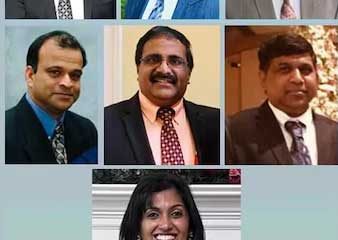
 us news11 months ago
us news11 months agoനോര്ത്ത് അമേരിക്കന് പെന്തക്കോസ്തല് റൈറ്റേഴ്സ് ഫോറം; അറ്റ്ലാന്റാ ചാപ്റ്ററിന് പുതിയ ഭാരവാഹികള്
-
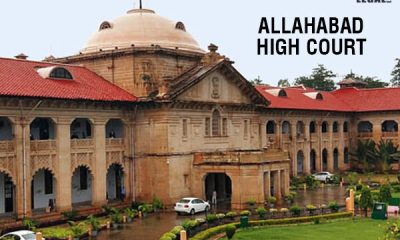
 National11 months ago
National11 months agoബൈബിൾ വിതരണം ചെയ്യുന്നതും നല്ല മൂല്യങ്ങൾ പഠിപ്പിക്കുന്നതും മതപരിവർത്തനമല്ല: അലഹബാദ് ഹൈക്കോടതിയുടെ നിര്ണ്ണായക വിധി
-

 world news10 months ago
world news10 months ago50 രാജ്യങ്ങളിലേക്ക് കുവൈത്ത് പൗരന്മാർക്ക് വിസയില്ലാതെ സഞ്ചരിക്കാം
-

 National5 months ago
National5 months agoനെയ്തേലിപ്പടി ക്രൂസേഡിന് അനുഗ്രഹീത സമാപ്തി
-

 Life11 months ago
Life11 months agoസൂര്യനെ ലക്ഷ്യമിട്ട് കുതിച്ച് ആദിത്യ എൽ1; ഇന്ത്യയുടെ ആദ്യ സൗരദൗത്യം വിജയകരം
-
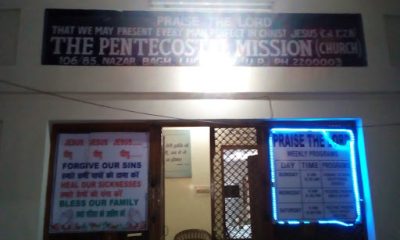
 National9 months ago
National9 months agoPentecostal mission center demolished in India; pastor, 17 others arrested
-

 Life10 months ago
Life10 months agoമനുഷ്യന് താമസിക്കാന് ചന്ദ്രനില് വീടുകള്; നാസ 3ഡി പ്രിന്ററുകള് ചന്ദ്രനിലേക്കയക്കും
-
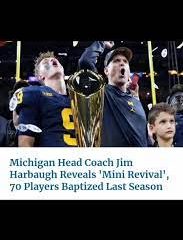
 Sports6 months ago
Sports6 months agoMichigan Head Coach Jim Harbaugh Reveals ‘Mini Revival’, 70 Players Baptized Last Season



